- Authenticate your cells. It is generous of your colleague down the hall to share some cells with you, but do you really know what they are? Misidentified, cross-contaminated cell lines, or poor storage techniques can wreak havoc on your cells and can invalidate your research. Take the time to authenticate your cells with ATCC. Our short tandem repeat (STR) profiling service will ensure that the cells are human cells, and we also offer a PCR-based service that can uncover contamination from mycoplasma.
- Use the correct culture media. Cells can be finicky. Stem cells and primary cells require specific media and reagents. To ensure that the characteristics of your cell line remain constant, maintain your cells in the same medium, serum, and supplements with the same subculturing regimen used to establish the culture. Any change to the culturing conditions has the potential to change the characteristics of the cell line. Be cautious when working with a new cell line. Media formulations vary among suppliers, even for media with similar or identical names. Take the time to read descriptions, formulations, and labels carefully so that the appropriate medium is used or the cell line could be inadvertently adapted to a new medium. All ATCC cell lines come with information on their growth medium. In most cases, the recommended medium and serum can be purchased from ATCC along with the cell line.
- Maintain cells in the exponential or log phase. To ensure viability, genetic stability, and phenotypic stability, cell lines need to be maintained in the exponential phase. This means that they need to be subcultured on a regular basis before they enter the stationary growth phase, before a monolayer becomes 100% confluent, or before a suspension reaches its maximum recommended cell density. Normal cells should be subcultured as soon as confluence is reached, or prior to reaching confluence. At 100% confluence, cells begin to enter a “plateau” phase of growth, stop growing, and start to die. Harvesting or subculturing the cells at 80% confluence, or when they are still in the exponential (log) phase of growth, will yield the maximum number of healthy, viable cells. Generating a growth curve for each cell line is useful to determine the growth characteristics of the cell line.
- Examine cells regularly for microbial contamination. When most bacterial contamination occurs, it usually occurs within a few days and is typically obvious to the naked eye. Distinct changes to the medium such as turbidity, presence of particles visible in suspension, and a rapid decline in pH (yellow color, indicating acidity) are all indicators of bacterial contamination. Fastidious bacteria species that grow very slowly can be difficult to detect. Observe the morphology and viability of cultures regularly and carefully. Examine the medium in the vessel for macroscopic evidence of microbial contamination. This includes unusual pH shifts (yellow or purple color from the phenol red), turbidity, or particles. Also, look for small fungal colonies that float at the medium-air interface. Specifically check around the edges of the vessel as these may not be readily visible through the microscope.
- Proper storage. Provide your cells with a long healthy life by cryopreserving them. Most cell cultures can be stored for many years, if not indefinitely, at temperatures below –130°C (cryopreservation). ATCC has recovered cells from cultures cryopreserved for more than 40 years. The many advantages of cryopreservation far outweigh the required investment in equipment and reagents.
The advantages of cryopreservation include:
- Generation of safety stocks to ensure against loss of the culture from equipment failures or contamination by microorganisms or other cell lines.
- Elimination of the time, energy, and materials required to maintain cultures not in immediate use.
- Preservation of cells with finite population doublings (that will ultimately senesce).
- Insurance against phenotypic drift in the culture due to genetic instability and/or selective pressure.
- Creating a standard reagent to be used for a series of experiments.
Cell Culture Expert
Steven Budd, MS, MBA
Product Specialist, ATCC
Steven Budd is a Product Specialist that manages the cell culture reagents at ATCC. He has 6 years of experience in the product management of scientific tools. Before that, he gained 4 years of experience in biomedical research and cell culture as a research specialist at the University of North Carolina at Chapel Hill. Mr. Budd has a M.S. in Biology from the University of North Carolina at Wilmington and an M.B.A. from North Carolina State University.
Get in-depth cell culture guidance
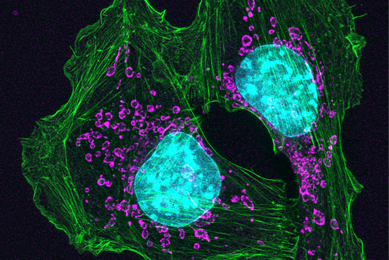 Culture guide
Culture guide
Animal Cell Culture Guide
Get tips and techniques for culturing animal cells from our experts and ensure that your results are reproducible.
More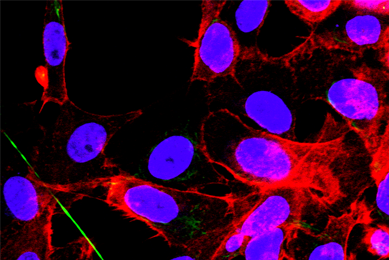 Webinar
Webinar
Tips and Techniques for Safeguarding the Health of Your Primary Cells and Cell Lines Webinar
In this webinar an ATCC expert taps into ATCC’s vast experience and shares the best practices for culturing cells that ensure optimal results and performance. The information delivered covers all aspects of successful cell culture, including culture initiation, expansion, authentication, and cryopreservation.
More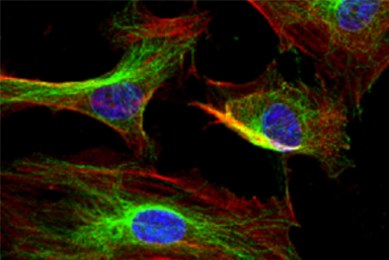 Webinar
Webinar
Best Practices for Cell Culture
In this webinar an ATCC expert taps into ATCC’s vast experience and shares the best practices for culturing cells that ensure optimal results and performance. The information delivered covers all aspects of successful cell culture, including culture initiation, expansion, authentication, and cryopreservation.
More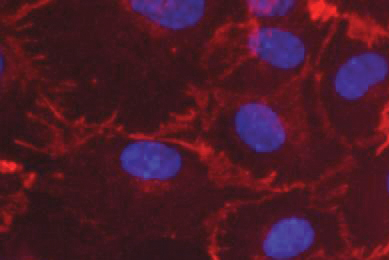
Culture Guides
Download these useful guides and start with fresh authenticated cells and strains from ATCC to achieve the best results.
More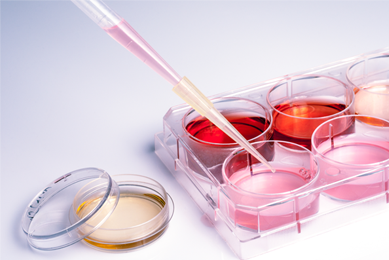
Culturing Cells
Cell culture is a fundamental tool used in areas as wide-ranging as drug development, toxicity testing, disease modeling, and regenerative medicine. Discover the tips and techniques you need to successfully culture your cells.
MoreMedia and Reagents
ATCC high-performance media, sera, and reagents are recommended for best results and are uniquely formulated according to ATCC cell culture specialists.
More